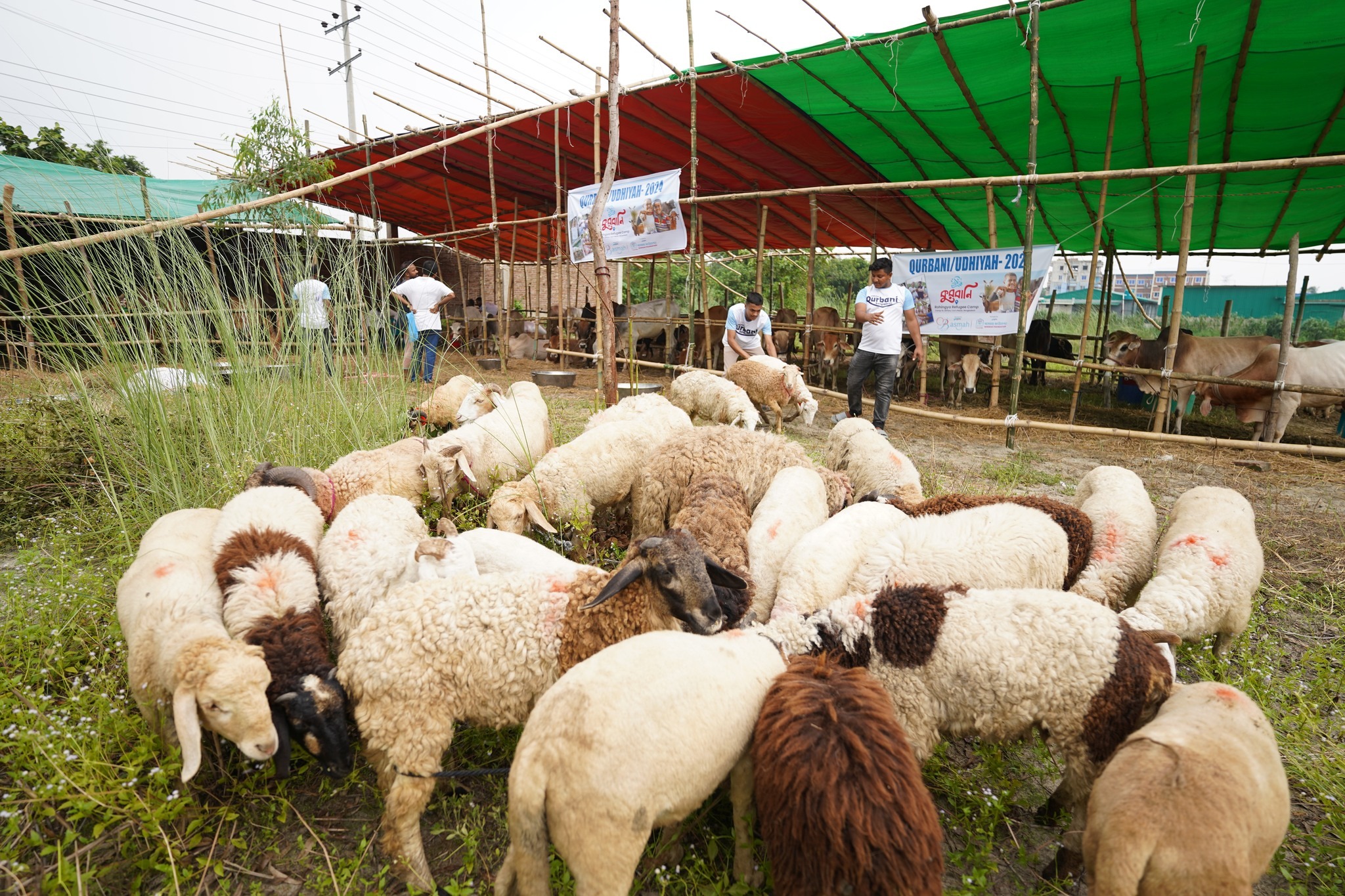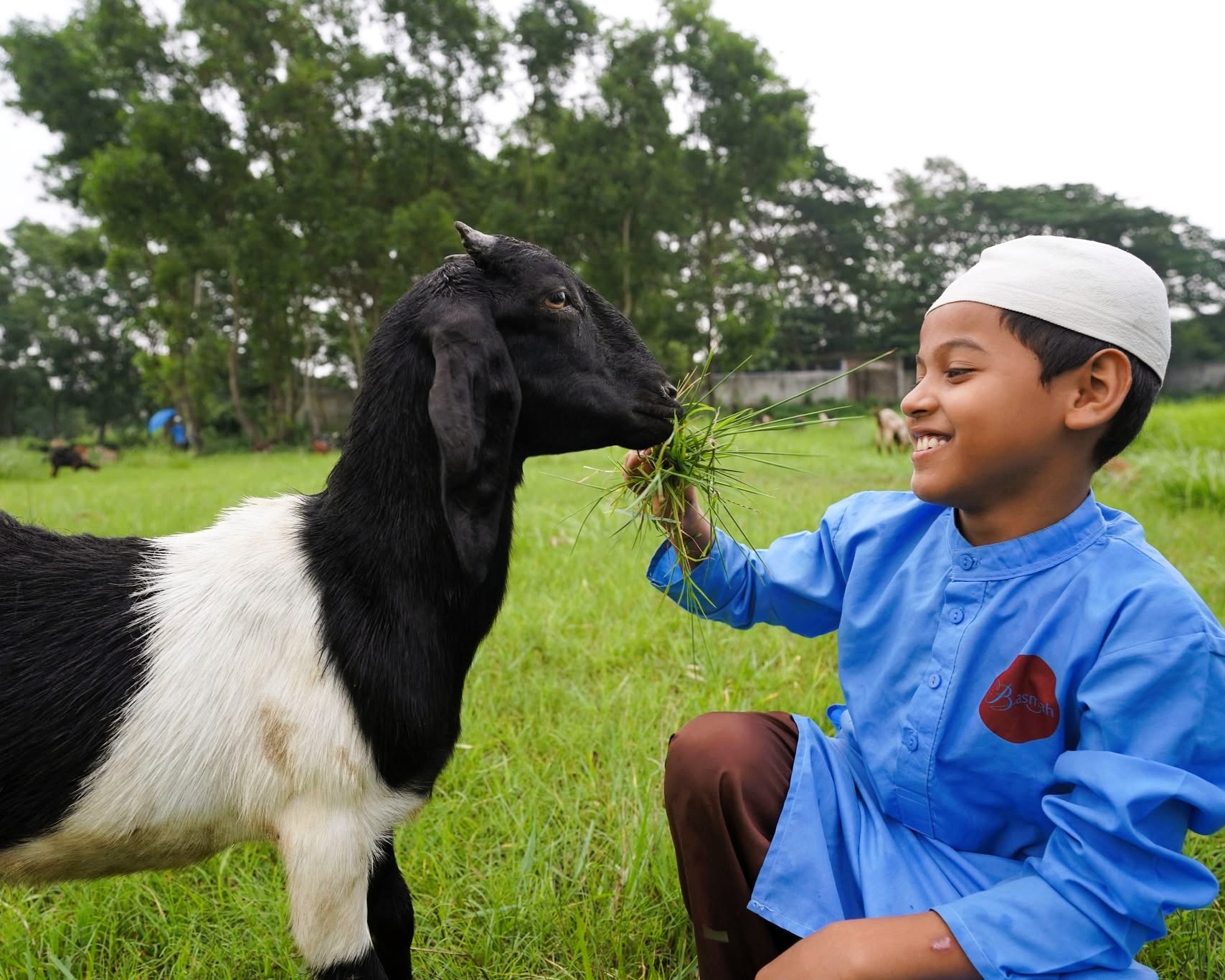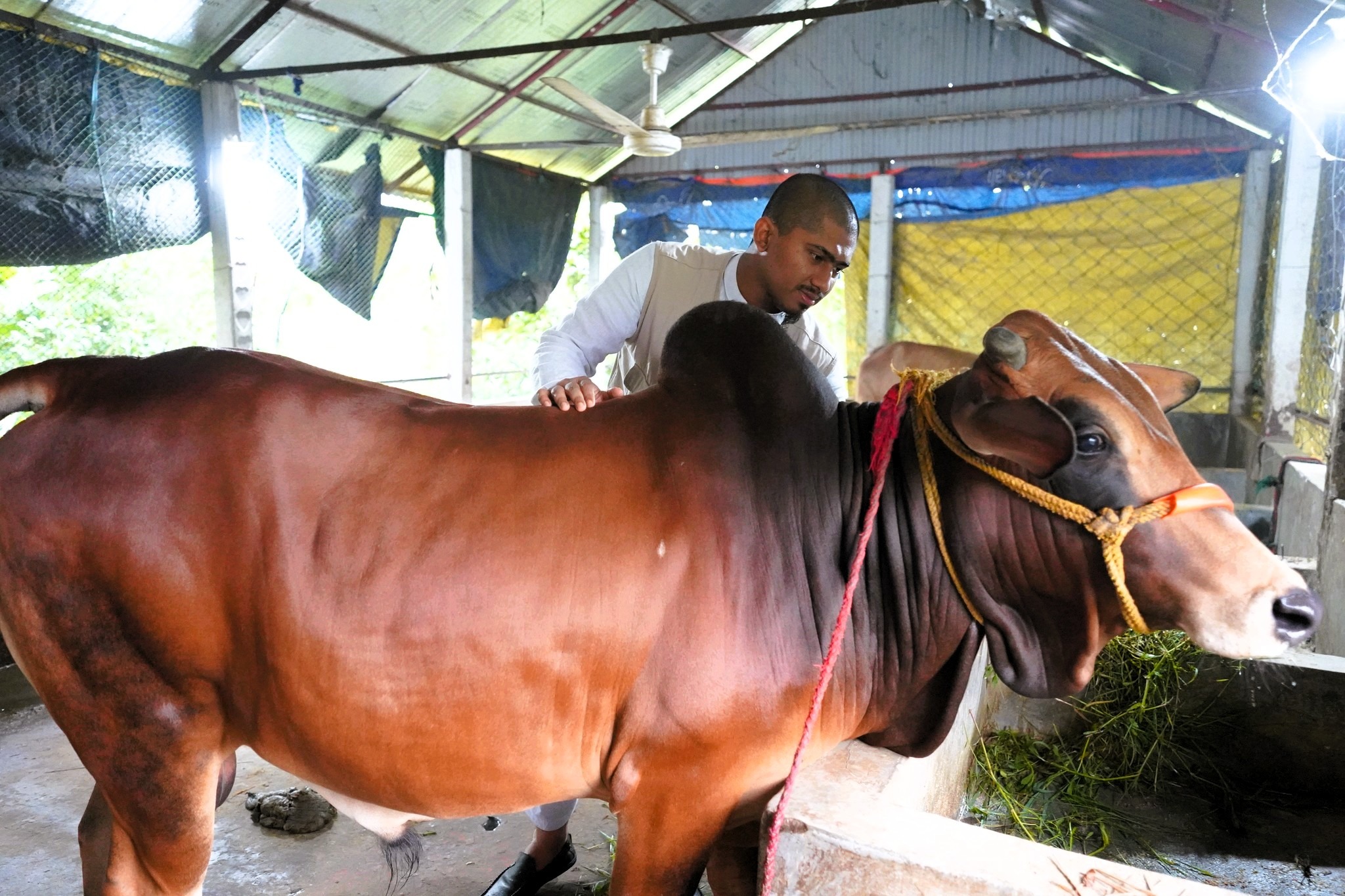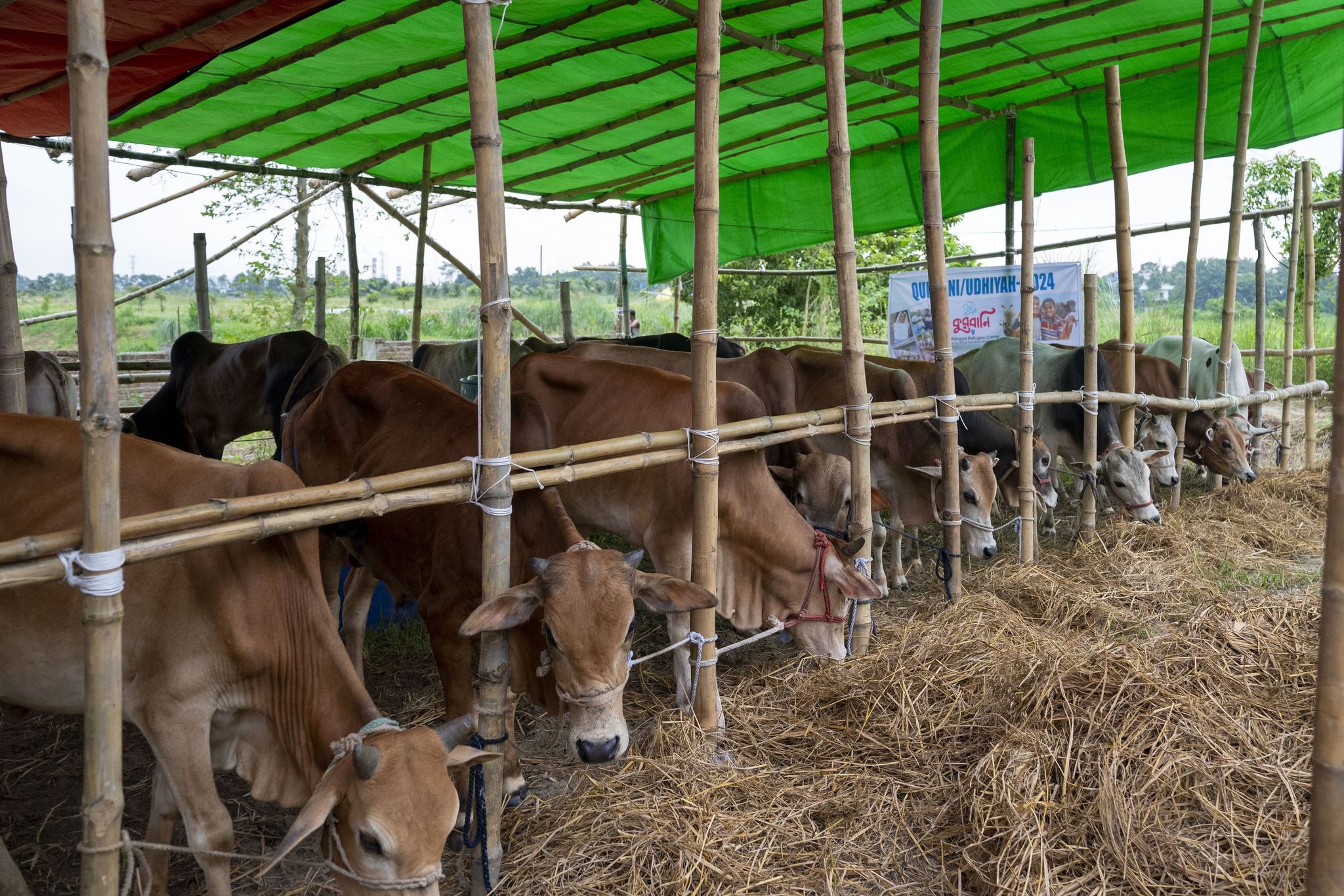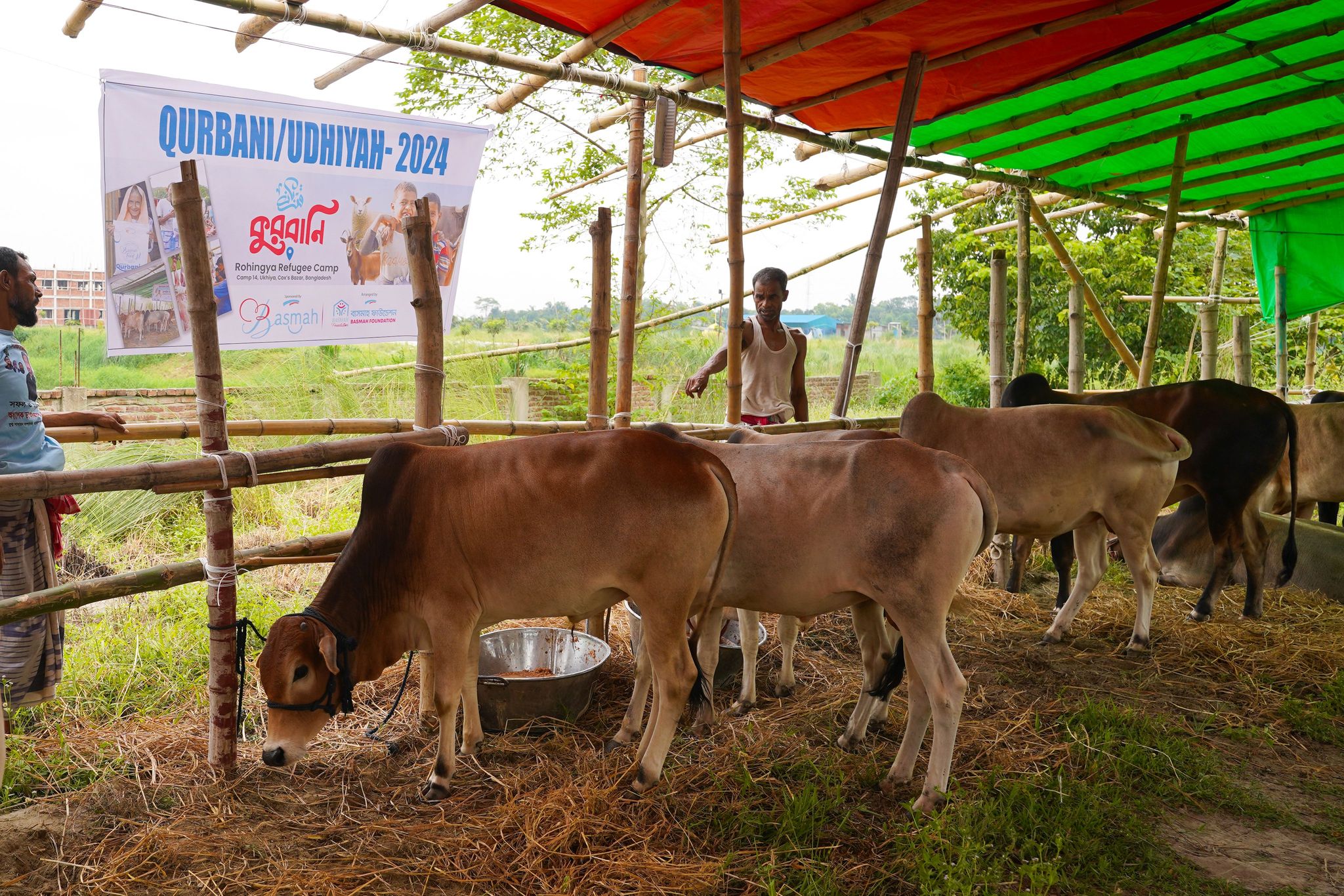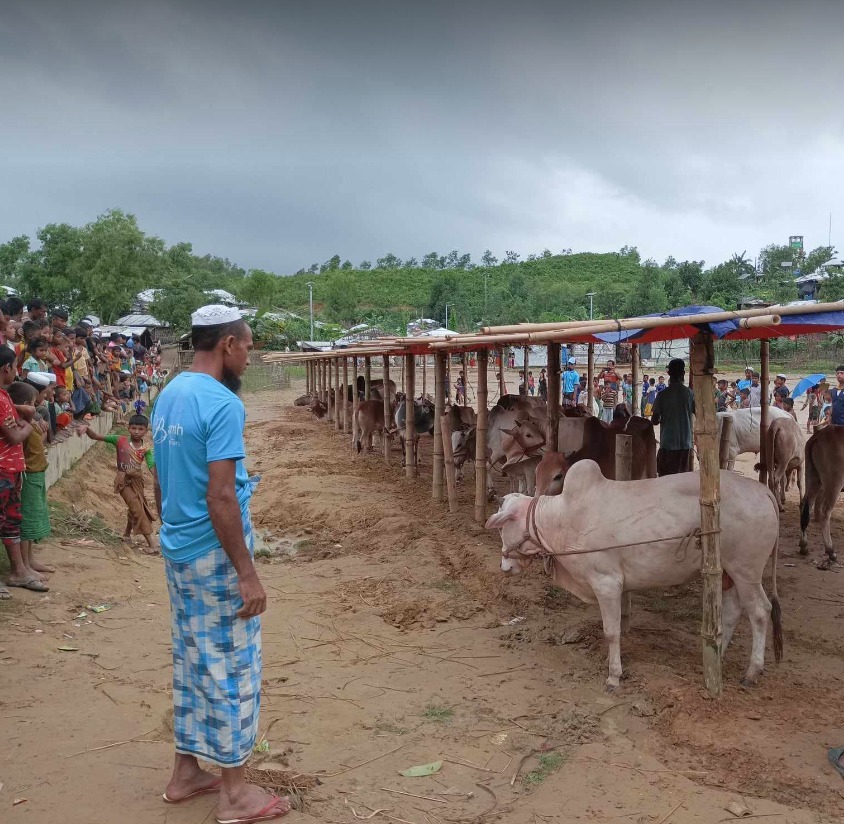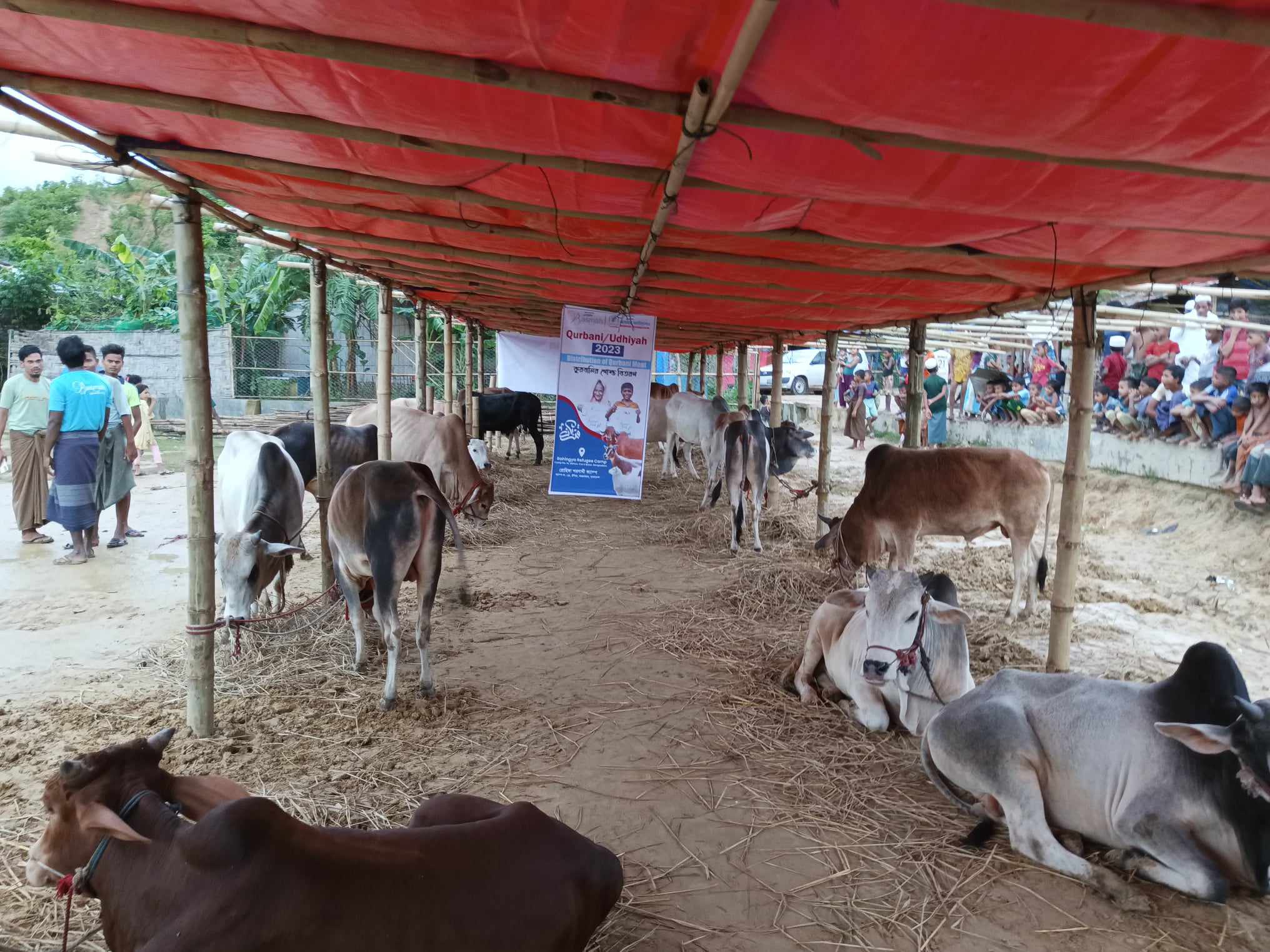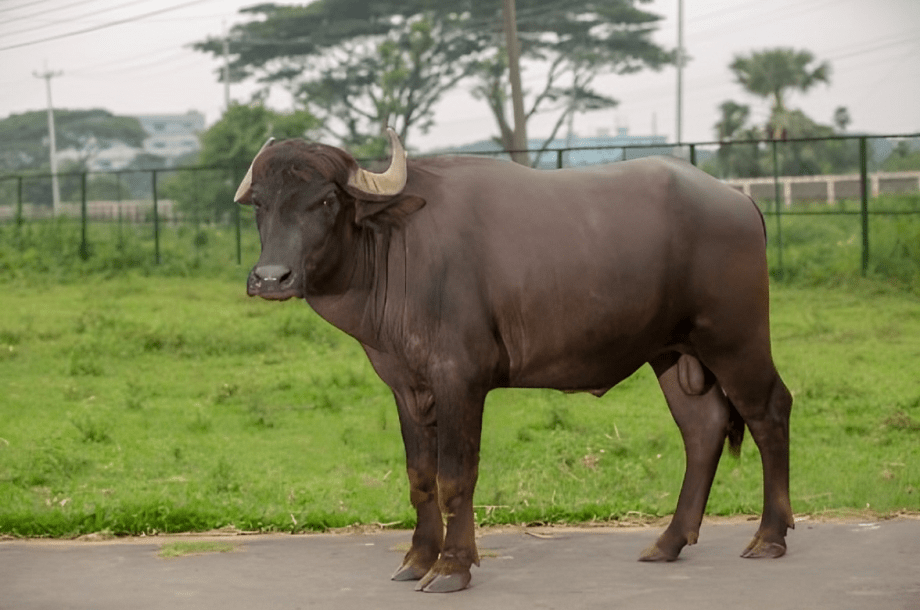Understanding Aqiqah and Qurbani
- Aqiqah or Qurbani for a Newborn: Telling Two Good Deeds Apart
- Who Needs to Do Qurbani? When Does It Become a Must?
- Sharing the Goodness: Can Qurbani Meat Be Given to a Child?
- Doing Both Together: Can Aqiqah and Qurbani Be Done at the Same Time?
- Babies and Qurbani: Is It Their Responsibility?
- More Than Just a Ritual: The Deeper Meanings of Aqiqah
- The Lasting Message of Qurbani
- In Conclusion: Celebrating New Life and Showing Devotion in Special Ways
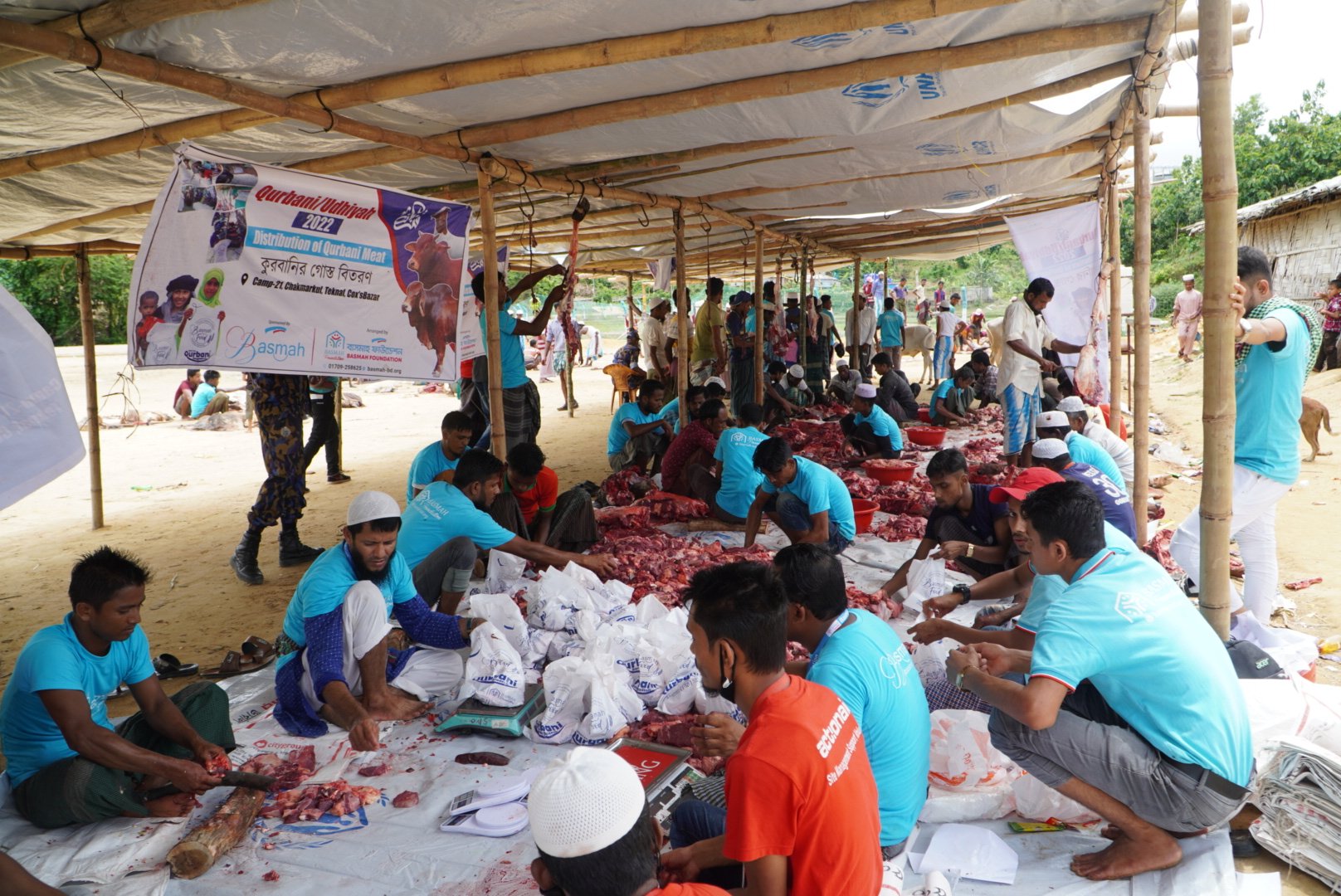
When a new baby arrives, it’s a time of great joy and thankfulness. In the Islamic faith, this very special time is often marked by respected traditions. One of these is a special offering to show thanks. However, the ways Muslims show devotion through offerings are like a beautiful, colorful rug with many different patterns. Sometimes, people might get a little mixed up about two different kinds of offerings. This article will help explain a special tradition for new babies, called Aqiqah, and show how it’s different from the yearly offering called Qurbani.
You might have heard about a special sacrifice made for a baby on the seventh day after they are born. This is called ‘Aqiqah’. The name might come from a word meaning ‘to cut,’ because an animal is sacrificed for Allah to show thanks for His wonderful gift of a child. For a baby boy, two animals (like sheep or goats) are usually offered. For a baby girl, one animal is offered. This isn’t about one being better than the other; it’s just how the tradition guides us. This act is a shining example from the Prophet Muhammad’s life.
The Aqiqah is something the Prophet Muhammad (peace and blessings be upon him) did and taught. It usually means sacrificing an animal like a goat or a sheep. While the seventh day after birth is the usual time, it’s okay if it needs to be done later. Life can be like a winding road, and sometimes plans need to adjust.
After the sacrifice, the meat isn’t just for one family. It’s shared, like a gift that spreads happiness. The family doing the Aqiqah keeps some, which helps bring them closer. A large part of the meat is given to people who don’t have much, the poor and the needy. This sharing builds a kind and caring community, like strong roots holding up a tree.
We know from history that Prophet Muhammad (peace and blessings be upon him), who is the best example for us, did the Aqiqah for his own beloved grandsons, Imam al-Hasan and Imam al-Husain (may peace be upon them). This shows how much he valued this tradition.
It was reported by Salmaan ibn ‘Aamir al-Dabbi that the Prophet (peace and blessings of Allah be upon him) said: “I heard the Messenger of Allah (peace and blessings of Allah be upon him) say: ‘For a boy (when he is born), there is an Aqiqah. So, offer a sacrifice for him, and remove anything that might bother him.’” This tells us the sacrifice is important and connected to caring for the newborn.
Aqiqah or Qurbani for a Newborn: Telling Two Good Deeds Apart
Many people think Qurbani and Aqiqah are the same thing. But they are actually different, even though both are acts of pleasing Allah. Think of them as two different paths leading to the same beautiful garden of earning God’s pleasure.
Qurbani (also called Udhiyah) is the big sacrifice that happens during the festival of Eid al-Adha. This festival lasts for four days, from the 10th to the 13th day of Dhul Hijjah, which is the last month in the Islamic calendar. Qurbani can be done every year by those who have enough money to do so. It’s a special way to remember Prophet Ibrahim’s (Abraham’s) amazing faith and his readiness to follow Allah’s command, even when it was very hard. Allah, in His mercy, replaced Ibrahim’s son with a ram to sacrifice. Doing Qurbani each year is like a flowing river, reminding us to be devoted and thankful for God’s kindness.
Aqiqah, on the other hand, is usually done only once in a person’s life, to celebrate their birth. It’s a highly recommended Sunnah (a practice of the Prophet Muhammad) to do the Aqiqah on the seventh day after a baby is born. Doing it at this time is wise. It gives the family a little time to rest after the baby’s birth and then welcome their new child with this beautiful act of thanks. Prophet Muhammad (peace be upon him) said, as told by Samurah, “A boy is connected to his Aqiqah. The sacrifice should be done for him on the seventh day, he should be given a name, and his head should be shaved.” This saying neatly lists the main things to do with Aqiqah.
What if the parents or guardians can’t do the Aqiqah on the seventh day? Islam is a religion of ease. They can do it on the fourteenth day. If they miss that day too, they can do it on the twenty-first day of the child’s life. In fact, it can be done on any seventh day after that until the child grows up and reaches puberty. This flexibility is like a soft, gentle path, making it easier for people who want to do this good deed. If it wasn’t done for a person when they were a child, some scholars say they can even do it for themselves when they grow up.

Imam Siraj Wahhaj
Honorary advisor of BASMAH
Who Needs to Do Qurbani? When Does It Become a Must?
The duty of Qurbani is for every Muslim who is sensible (has a sound mind) and has reached adulthood (puberty). They also need to have a certain amount of wealth (called Nisab) that is more than what they need for their basic living. This makes sure that Qurbani is something people do if they can afford it, showing fairness. It is not asked of young children or people who don’t have the financial means. The wisdom behind this is as clear as a bright, sunny day, showing God’s fairness.
Sharing the Goodness: Can Qurbani Meat Be Given to a Child?
Yes, absolutely! The meat from the Qurbani sacrifice can definitely be shared with and given to children. In fact, it’s encouraged to share Qurbani meat with family, friends, neighbors, and very importantly, with those who are poor and needy, no matter their age. Children, especially those who might not have much, are very deserving of this blessed food. Giving Qurbani meat to a child is like planting a seed of happiness that will grow.
But, if the question means, “Does a child have to offer a Qurbani sacrifice themselves?” then the answer is no, as we explained earlier. That responsibility comes later in life, with age and ability.
Doing Both Together: Can Aqiqah and Qurbani Be Done at the Same Time?
Sometimes, the time for Eid al-Adha (when Qurbani is done) might fall around the same time as when a baby’s Aqiqah is due (like the seventh day after birth). So, can someone do both at once?
Islamic scholars have different detailed opinions, but many agree that it can be possible. If someone is sacrificing a larger animal, like a cow or a camel, these animals count for multiple shares. So, a person could use one share for their Qurbani and another share (or two shares if it’s Aqiqah for a boy) for the Aqiqah. The important thing is to have a clear intention for each act. Imagine two separate streams of water; they might flow close to each other but they are still two distinct streams. If someone is sacrificing a single sheep or goat, this animal usually counts as one share. So, it would generally be for either Qurbani or Aqiqah, not both at the same time. It’s always a good idea to ask a knowledgeable religious scholar if you have questions about things like this, so you can do things in the best way. This ensures each act keeps its special meaning.
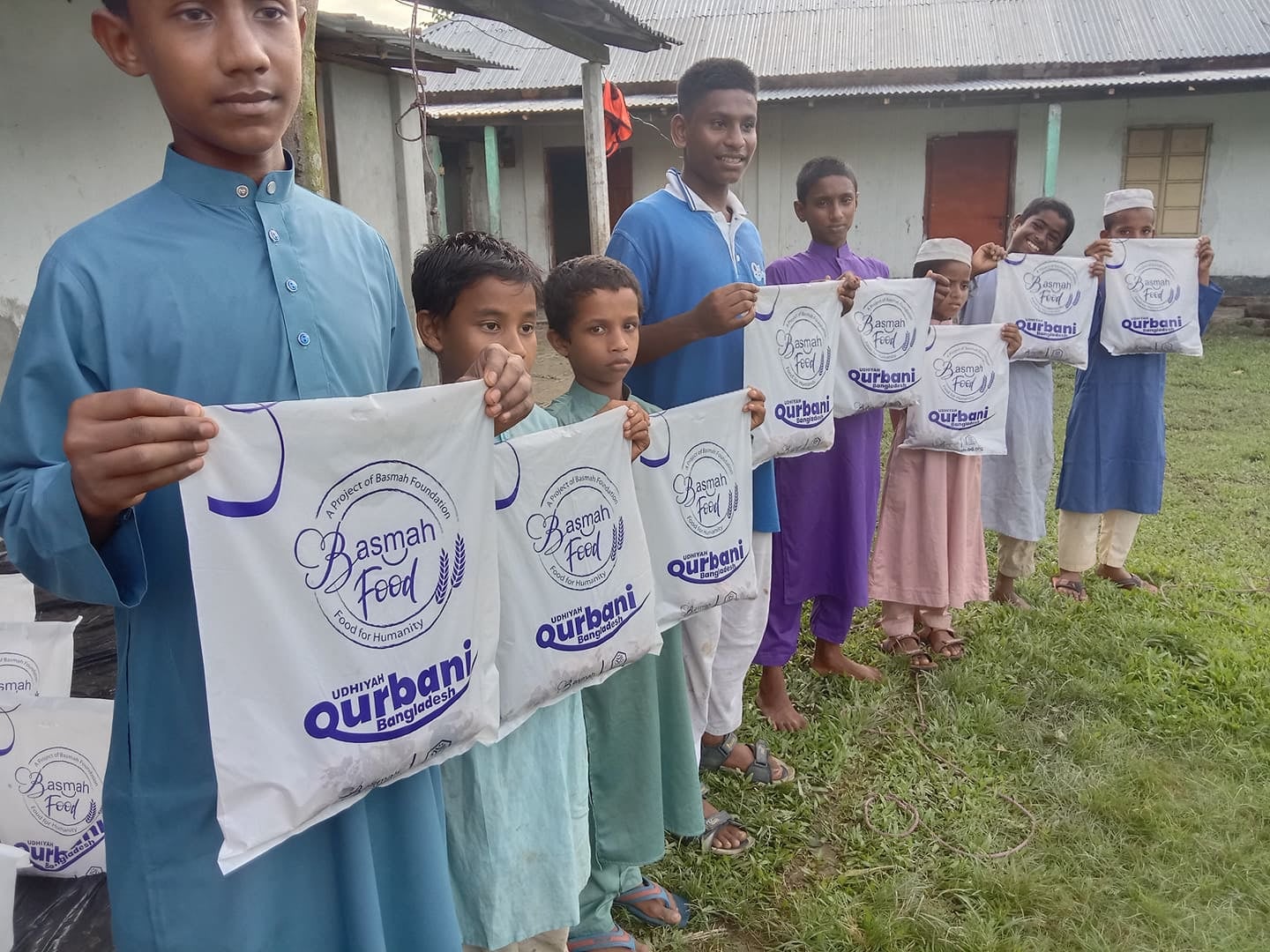
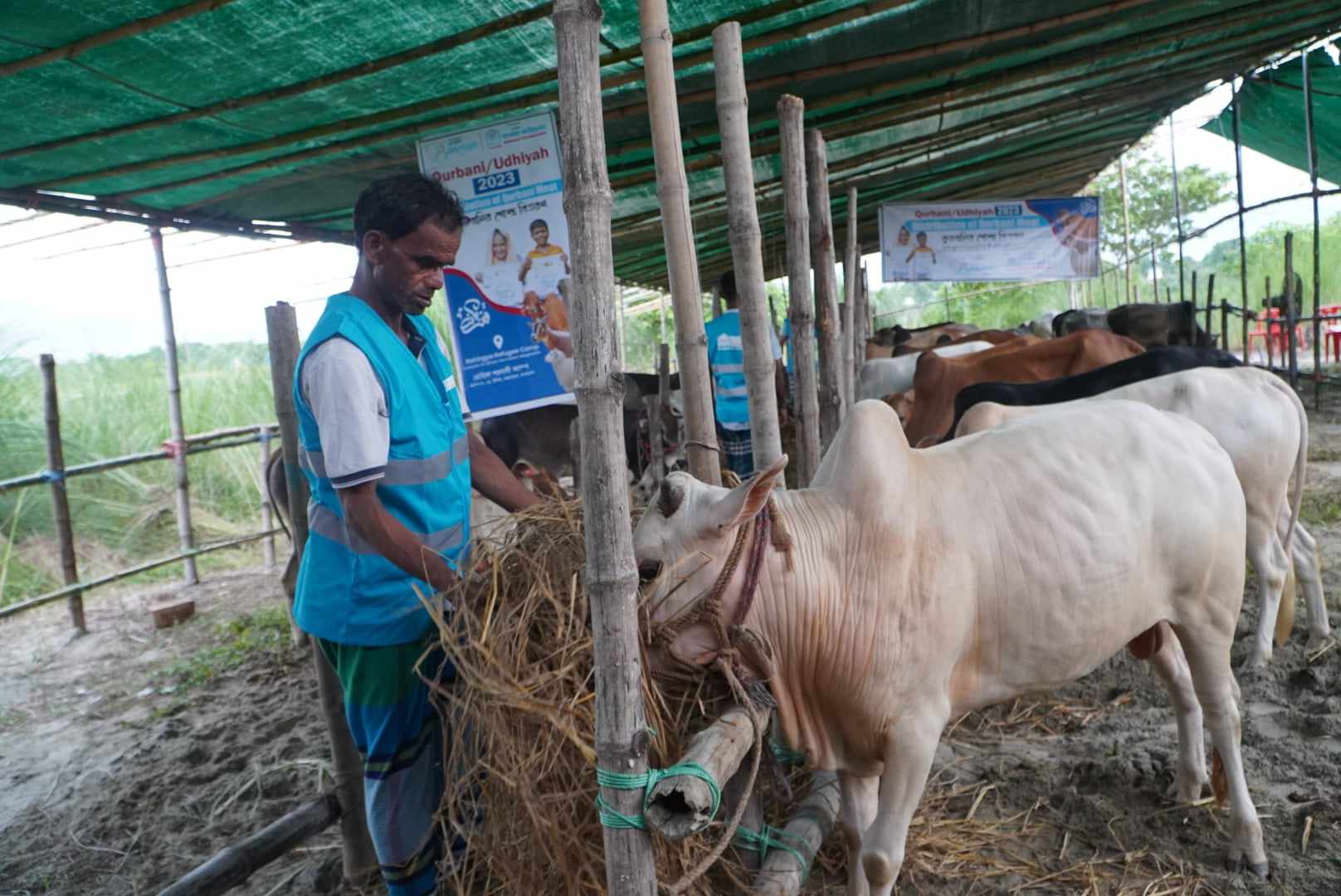
Babies and Qurbani: Is It Their Responsibility?
Just to be very clear: Qurbani is not something babies or young children have to do. Qurbani is for Muslims who are grown-up, sensible, not traveling (for some views), and have the financial ability. Childhood is a time for being cared for and nurtured, not for religious duties that involve spending money. You could say their “Qurbani” is the happiness and blessings they bring to their families and everyone around them, which is as pure and fresh as morning dew.
More Than Just a Ritual: The Deeper Meanings of Aqiqah
Aqiqah is more than just sacrificing an animal and sharing meat. It has deep spiritual and social importance. First and foremost, it’s a big “thank you” to Allah for the amazing gift of a child – a gift more precious than anything. The sacrifice is also seen as a way to protect the child and ask for their well-being. Some scholars have said it’s like opening up the child’s path for goodness and that the child might even be able to help their parents in the afterlife.
Shaving the child’s head on the seventh day, which often goes along with Aqiqah, is another part of this lovely tradition. After shaving, people often give the weight of the hair in silver (or the same amount in money) to charity. This has special meanings too: like removing any harm from birth, giving the baby a fresh start, and teaching the importance of giving charity right from the start of the child’s life. Giving the child a good name on this day is also very important. A good name can be like a wish for the child to grow up with good qualities. When these things are done with understanding, they turn a tradition into something truly meaningful for the heart and soul, just like a tiny seed, when cared for, grows into a beautiful flower.
The Lasting Message of Qurbani
In the same way, Qurbani is much more than just an animal sacrifice. It’s a powerful reminder every year to submit to Allah’s will, just like Prophet Ibrahim (AS) was ready to do. It helps us feel for others and be kind, because it requires us to share the meat with those who have less. This makes sure that even the poorest people can enjoy a good meal during the Eid al-Adha celebration. This act of sharing is not just about giving; it also helps to purify our own wealth and our hearts. It’s a real-life lesson in the Islamic idea of looking after each other in society. Qurbani teaches us that everything we have is a gift from Allah, and we should share some of it. It’s about not being too attached to worldly things and being more attached to pleasing God. This is like food for the spirit, just as important as food for the body.
In Conclusion: Celebrating New Life and Showing Devotion in Special Ways
Both Aqiqah and Qurbani are shining examples of faith, sacrifice, and community spirit in Islam. Aqiqah is like a sweet song welcoming a new life. It focuses on the child’s happiness and shows the parents’ thankfulness. Its tune is gentle but full of meaning. Qurbani is like a grand song played during Eid al-Adha. It reminds us of Prophet Ibrahim’s (AS) great faith and teaches us about obedience, remembering God, and being kind to everyone.
Understanding how these two important acts are different – their different timings, their special meanings, and when they should be done – helps us do them correctly and with true feeling. Even though both involve an offering, they have different spirits. One is a special welcome for a new soul, done once. The other is a yearly act for the whole community, showing our deep faith. By following these traditions with understanding and a pure heart, a Muslim’s life becomes richer. They are not just routines; they are living parts of our faith. Each one, like a bright star in the sky, lights up a believer’s path with its own special glow.

